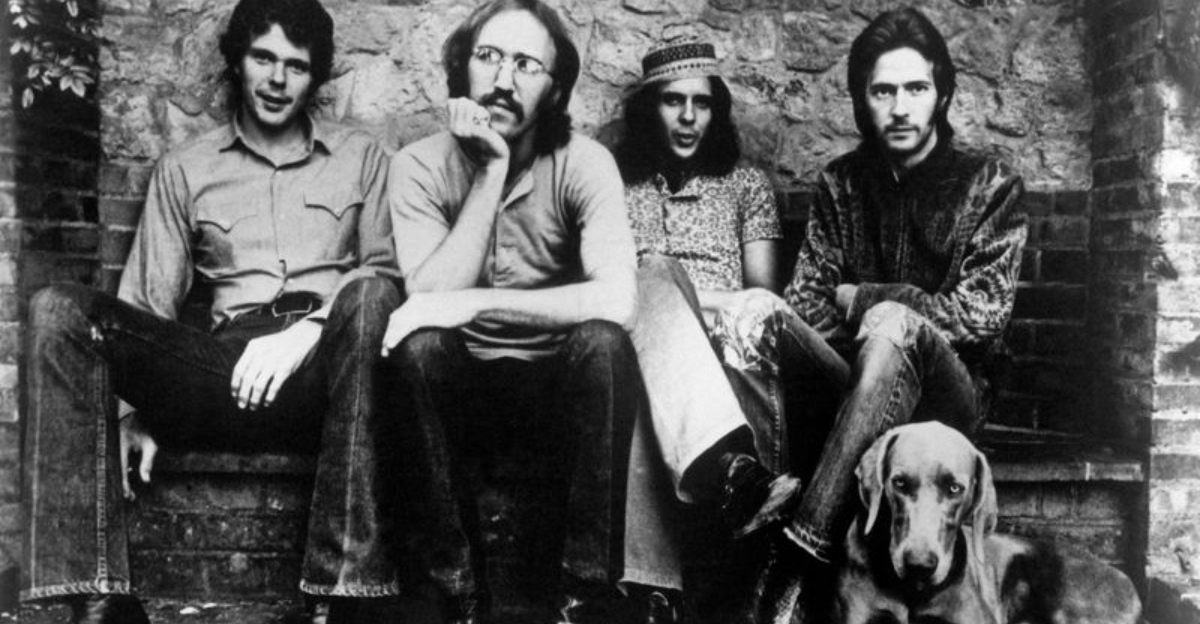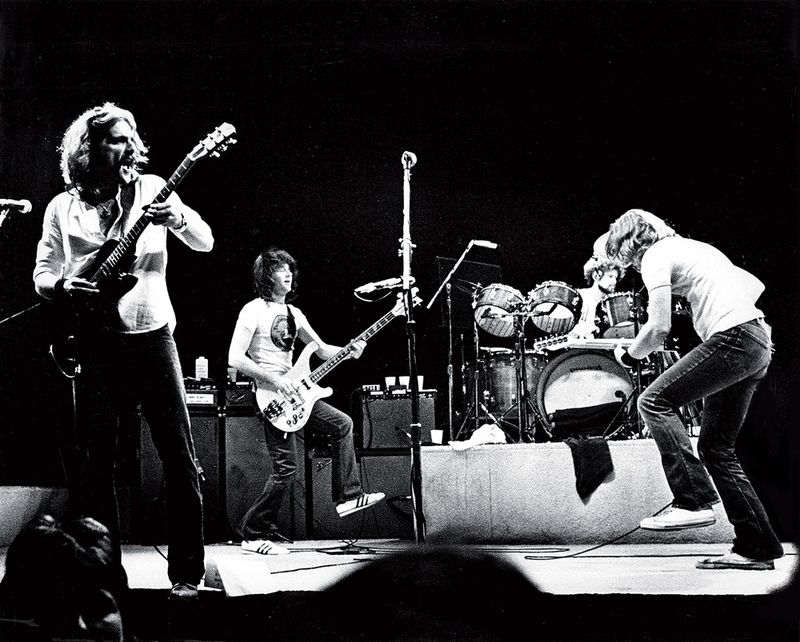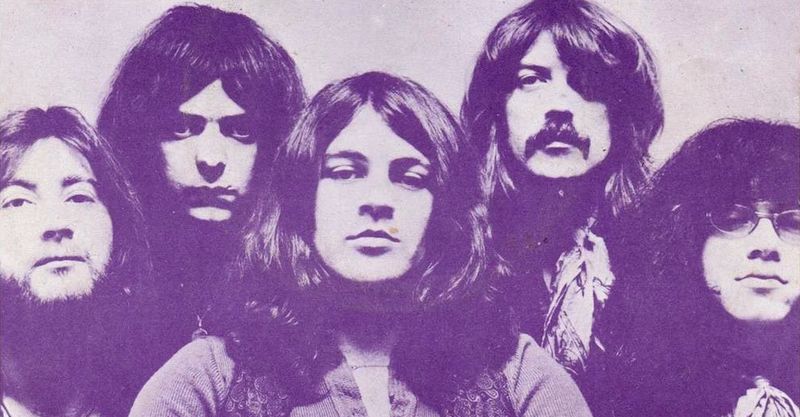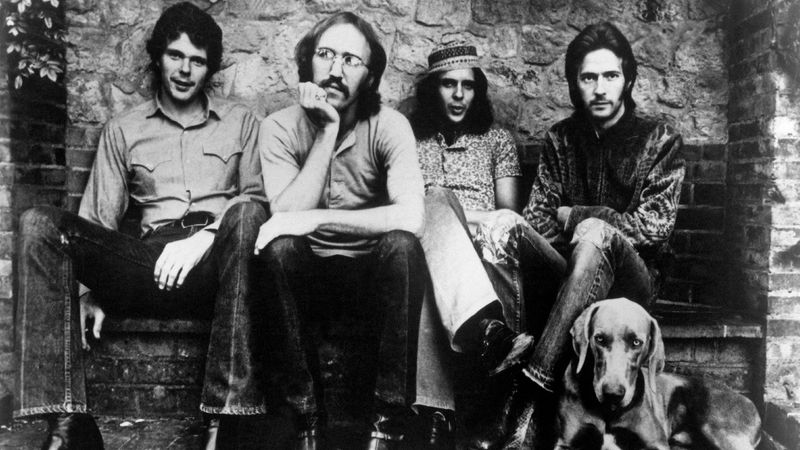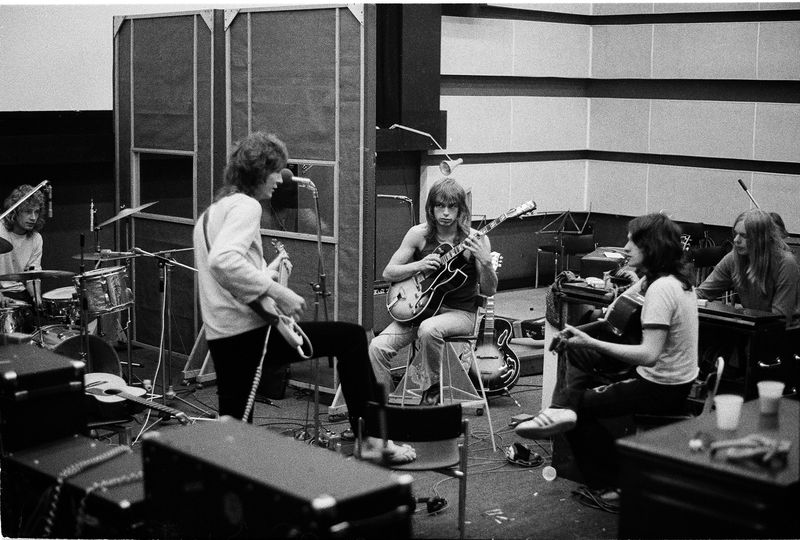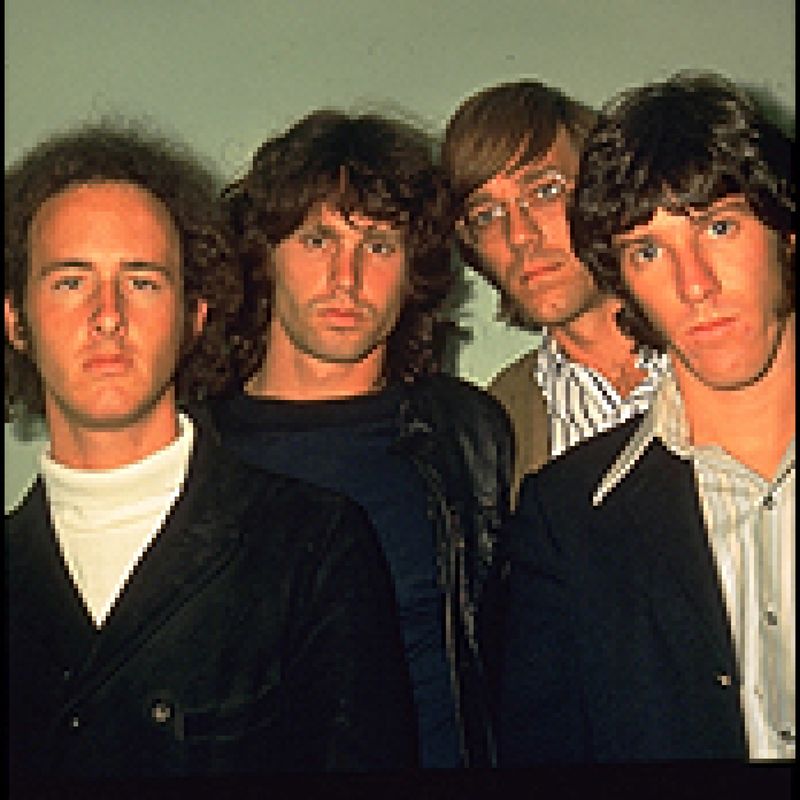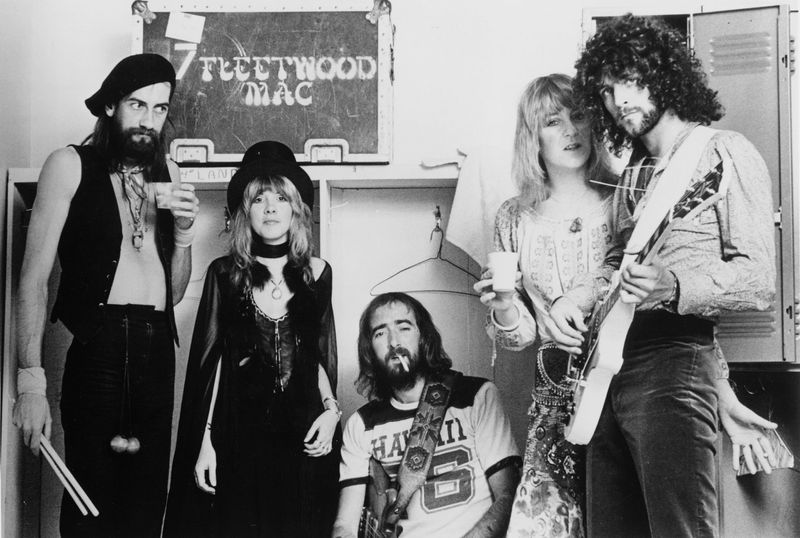The 1970s was a decade rich with musical innovation and unforgettable hits. However, not every track that has been celebrated over the years deserves such unwavering adulation.
Here are 15 songs from that era that, while iconic, may have received more praise than their musical merit warrants.
1. Stairway to Heaven – Led Zeppelin (1971)
“Stairway to Heaven” is often hailed as a rock masterpiece, but its endless airplay might overshadow its more mundane moments. While the song builds to an epic crescendo, the lyrics can feel overly enigmatic.
Its cultural status sometimes eclipses its actual musical depth. Despite its iconic solo and production, some listeners find it drawn out.
Yet, its allure remains, largely due to nostalgia and its pivotal role in rock history. Was it truly groundbreaking, or has it simply become a staple of classic rock tradition?
2. Bohemian Rhapsody – Queen (1975)
“Bohemian Rhapsody” is a legendary multi-part anthem, often replayed more out of ritual than necessity. Its complex structure is both its charm and its critique.
While it showcases Queen’s unparalleled creativity, some argue its eclectic style is more chaotic than genius. The opera-rock fusion, though innovative, isn’t everyone’s cup of tea. Does it deserve endless replay, or is it simply the novelty that endures?
The song remains a cultural phenomenon, continually celebrated in film and media, yet its musical value is a topic of debate among critics.
3. Hotel California – The Eagles (1976)
“Hotel California” is revered for its mysterious lyrics and iconic guitar solos, yet some feel its mythos overshadows its actual composition. The song paints a vivid picture of Californian excess but can come across as repetitive upon numerous replays.
Fans continue to decode its meaning, but does this intrigue mask its musical shortcomings?
It’s a staple of classic rock stations, embodying the era’s spirit, though its overplayed nature might dilute its intended impact. Is it the enigma of the lyrics or the music itself that captivates audiences?
4. Imagine – John Lennon (1971)
“Imagine” is celebrated as an anthem for peace, but its utopian vision can feel overly simplistic. While its melody is hauntingly beautiful, the lyrics may come off as naive to some listeners.
Despite this, its message of hope and unity continues to resonate worldwide. The song’s straightforwardness is both its strength and its flaw, offering solace to many while leaving others wanting more depth.
Is its enduring legacy due to its simplicity, or does it genuinely convey an essential truth that transcends its lyrical shortcomings?
5. American Pie – Don McLean (1971)
“American Pie” is a sprawling narrative filled with cultural references, yet its extensive analysis might overshadow its musical content. The song’s cryptic nature invites endless interpretation, drawing listeners into its historical web.
While its storytelling is engaging, some argue that the song’s actual tune doesn’t match its legendary status. Its lengthy runtime adds to its mystique but can be tiresome.
Is it the nostalgia and riddles that captivate, or does the song deserve its monumental place in music history for other reasons?
6. Free Bird – Lynyrd Skynyrd (1973)
“Free Bird” is famous for its marathon guitar solo, yet it’s become a rock cliche, often played more out of tradition than quality. The song’s emotional appeal and blistering finale captivate audiences, but its initial verses are sometimes overlooked as mundane.
While it has become an anthem for freedom and rebellion, the question remains: is it truly a standout track, or merely a product of its time? The debate continues among fans and critics alike, as its legacy endures in the pantheon of rock anthems.
7. More Than a Feeling – Boston (1976)
“More Than a Feeling” features a catchy riff and polished production, celebrated almost to a fault. Its infectious melody hooks listeners instantly, but its lyrical content may come across as repetitive.
The song is often praised for its technical prowess, yet some critics argue that its sheen masks a lack of emotional depth.
Does the song’s enduring popularity lie in its craftsmanship, or is it simply nostalgia that keeps it alive on classic rock playlists? The track remains iconic, yet its true artistic value is up for debate.
8. Smoke on the Water – Deep Purple (1972)
“Smoke on the Water” boasts an undeniably iconic riff, yet its status might be elevated beyond its overall composition. The song recounts a true rock and roll tale, adding to its legendary appeal.
However, some listeners feel the narrative and its repetitive nature overshadow its musical complexity.
While its riff is often a guitarist’s initiation piece, does the song truly deserve iconic status, or is it simply the story behind it that captivates? Its place in rock history is secured, but its musical merits continue to be debated.
9. Layla – Derek and the Dominos (1970)
“Layla” is known for its passionate guitar work and emotive lyrics, yet some claim its cult status outshines its flaws. The iconic riff and the song’s dramatic shift leave an indelible mark.
Nevertheless, critics point out that its narrative might rely heavily on its backstory with Clapton’s personal life. While the song is a staple in rock lore, is it the emotion or the myth that keeps it alive?
Its legacy lives on, debated for its heartfelt performance and its storied inspiration, captivating listeners across generations.
10. Kashmir – Led Zeppelin (1975)
“Kashmir” is an expansive, mystical tune revered in rock lore. Its atmospheric soundscapes transport listeners, but some argue its allure is more about branding than innovation.
The haunting melody and exotic influences set it apart, yet not everyone is enchanted by its prolonged journey. Does its mystique derive from its musicality, or is it simply the Led Zeppelin legacy that enhances its reputation?
The song remains a testament to the band’s ambitious artistry, though its true impact on music is a subject of ongoing discussion among fans.
11. Roundabout – Yes (1971)
“Roundabout” is celebrated for its intricate musicianship, though some perceive it as style over substance. The song’s complex arrangements and skilled instrumentation impress, yet its lengthy form can feel self-indulgent.
While it exemplifies prog-rock’s ambition, it might not resonate with everyone. Is it the technical brilliance or the novelty that keeps “Roundabout” in the limelight?
The track showcases the virtuosity of Yes, though for some, it raises the question: does it captivate through genuine artistry or sheer complexity?
12. Dream On – Aerosmith (1973)
“Dream On” stands as a power ballad staple, yet its overplayed sentiment can feel tired. Steven Tyler’s riveting vocals drive the song’s emotional core, but its ubiquitous presence has led some to view it as worn-out.
The introspective lyrics and soaring music captivate, but are its repeated plays a testament to its greatness or simply tradition?
Once fresh and innovative, “Dream On” now resides in the realm of classic rock, leaving listeners to ponder its true place in music history: enduring classic or overhyped relic?
13. Riders on the Storm – The Doors (1971)
“Riders on the Storm” is an atmospheric track that many romanticize; its aura of mystery sometimes outpaces its musical impact. The haunting keyboard lines and Jim Morrison’s voice create a chilling mood, yet its slow tempo can deter.
The song’s enigmatic appeal draws listeners, but is it the music or the mystique that endures?
While it captures a unique mood, the question remains whether its status is deserved or reflective of the band’s iconic image. Its legacy continues, inviting both reverence and critique from fans.
14. You’re So Vain – Carly Simon (1972)
“You’re So Vain” captivates with its catchy tune and mysterious subject, sparking endless debates. The song’s intrigue often overshadows its musical elements, as listeners speculate about its inspiration.
While the melody is memorable, some critique its simplicity, questioning if the song’s fame stems more from its gossip appeal than artistic merit.
The enduring mystery keeps it alive in popular culture, but does it truly deserve a place among the greats? Its legacy is undeniable, yet it invites ongoing evaluation of its true musical value.
15. Go Your Own Way – Fleetwood Mac (1977)
“Go Your Own Way” is a breakup anthem that captured the public’s imagination, celebrated more for its cultural status than lyrical depth. Lindsey Buckingham’s raw emotion and dynamic guitar work drive the song’s appeal.
However, some may feel its repetitive refrains lack nuance. It stands as a hallmark of Fleetwood Mac’s turbulent history, raising the question: is it the tumultuous backstory or the musical composition that keeps it in the limelight?
Its place in classic rock remains, offering both an emotional connection and critique from listeners.
